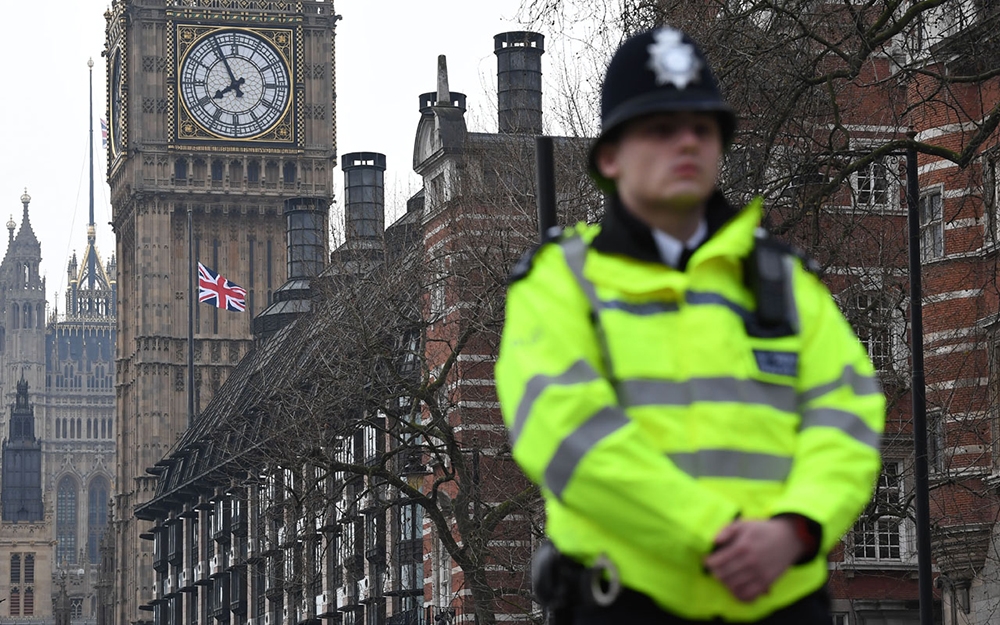Dennis Bayazitov | Staff Writer
Featured image: The recent attacks in Westminster have been heavily covered by international media sources. | Courtesy of The Guardian
Very few instances test a government’s power more intensely than an act of terror.
In times like this, leaders of the attacked nation have the duty to sympathize with the afflicted, but also to reassure their public that it is still safe.
The media and the press, meanwhile, are placed in just as difficult a situation: entrusted with the responsibility to inform; however, they are unable to do so without also promoting the terror group’s main message.
With the latest terrorist attack in London, where Khalid Masood, a 52-year-old previously dismissed as a peripheral figure by MI5, drove a car over Westminster Bridge through dozens of pedestrians and stabbed an unarmed police officer, reporters were forced to evaluate their ethics yet again.
Before being gunned down, Masood killed four others and wounded over 30 more. Through its Aaamaq news agency, the Islamic State group said that he was a “soldier of the Islamic State.”
In response to the attack, Prime Minister Theresa May said in a House of Commons speech that “as generations have done before us and as future generations will continue to do, [today we] deliver a simple message: we are not afraid, and our resolve will never waver in the face of terrorism.”
“We meet here in the oldest of all parliaments because we know that democracy and all the values it entails will always prevail. Those values—free speech, liberty, human rights and the rule of law—are embodied here in this place, but they are shared by free people around the world.
“This was an attack on free people everywhere.”
Observing the use of London’s media by government officials to communicate with the public reveals what the priorities of leadership are in following a terror attack.
“I think the coverage of Wednesday’s Westminster attack is instructive in this regard,” says Wade Rowland, communications studies professor at York.
“First, of course, the leadership has to ensure that the public are fully informed, and reassure them that measures are being taken to ensure their security.
“Hence, extra police were highly visible in London after the attack, even though the attacker was dead and he had no apparent accomplices.
“The media are in a very difficult position when it comes to covering terrorist acts. There is an obvious obligation to keep the public informed, and to ensure that fact takes precedence over rumour.
“But the very act of providing coverage is what makes a terrorist act complete and effective.”
One popular saying in journalism urges journalists “to afflict the comfortable, and comfort the afflicted.” In the distressed times and heightened sensitivity that follow a terror attack, however, one cannot help but question which of the two sides is exploited more—and in which of the two cases it is more profitable to do so.
“Terrorism is theatre, and it requires an audience to have the desired impact,” says Rowland.
“The media, to some degree, determine how large that audience will be. Coverage beyond what is necessary to keep the public fully informed serves the terrorists’ purpose rather than the public interest.”
“The prime minister was among lawmakers near the Commons at the time of the attack, and was quickly ushered away by security officers and driven back to Downing Street,” reported Jill Lawless and Danica Kirka of The Associated Press.
“The attack unfolded near some of the city’s most famous tourist sites, including the London Eye, a large Ferris wheel with pods that overlook the capital. It was halted after the attack, stranding visitors in the pods, with an aerial view of the attack scene.”
On CBC Radio’s Ottawa Morning the day after the attack, former BBC broadcast journalist Robin Lustig joined host Robyn Bresnahan to discuss the details.
“What a terrorist wants is maximum publicity,” said Lustig. “By choosing a place where he was likely to kill and injure people from many different countries, he was ensuring that right across the world, his actions would receive publicity. It was no coincidence that that was the venue he chose.”
Government officials are not the only parties tasked with immense responsibility on a day of terror; journalists and broadcasters, too, must struggle with the ethics of reconciling reporting that which ought to be known, and that which only further afflicts the already afflicted.
“Had the Westminster attack been merely a tragic traffic accident, perhaps caused by mechanical failure or the driver’s illness, it would still have merited coverage,” adds Rowland.
“But the Toronto Star gave it page one and several full pages inside, and CBC led their newscasts with it for more than 24 hours. This seems to me clearly excessive, and thus a gift to the terrorists.”


